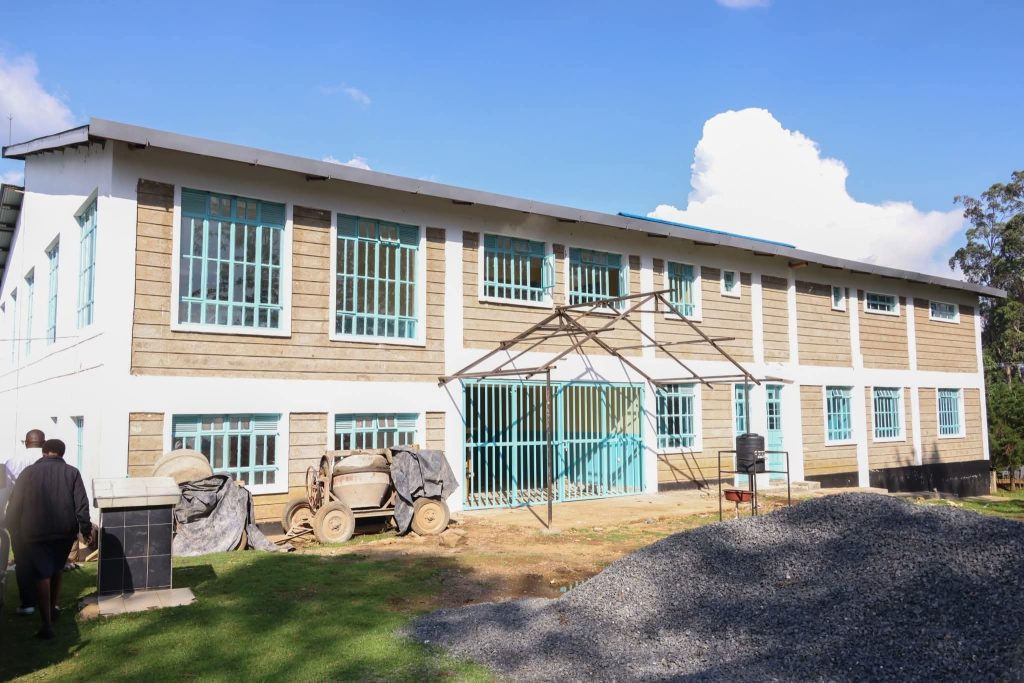 Governor Stephen Sang (c) during a visa at Kobujoi Health Center in Aldai Sub county Nandi County
Governor Stephen Sang (c) during a visa at Kobujoi Health Center in Aldai Sub county Nandi County  The upcoming outpatient block at the Kobujoi Health Center in Nandi county
The upcoming outpatient block at the Kobujoi Health Center in Nandi countyNandi Governor Stephen Sang is fast-tracking
completion of key health projects across the county in what he terms a legacy
drive to improve access to quality healthcare, particularly in rural areas.
Sang said his administration’s goal
is to ensure residents can access medical services within their villages
instead of travelling long distances to urban centres.
“The ideal situation should be that
our people in rural areas do not travel more than 5km to access a
health facility, especially one that can handle common ailments,” he said.
The governor, who is serving his
second term, said all ongoing hospital projects in Nandi’s six subcounties
will be completed within the next two years as part of efforts to revolutionise
the county’s healthcare landscape.
Sang made the remarks during an
inspection tour of the new Outpatient
Unit at Kobujoi Health Centre in Aldai Subcounty, which he described as
a cornerstone of the county’s broader strategy to dismantle barriers to quality
care.
Once completed, the facility is
expected to decongest existing wards,
streamline patient flow and bring specialised medical services closer to
residents, especially vulnerable groups, such as mothers, children and the
elderly.
Sang said the county’s health
investments align with President William
Ruto’s push for universal health coverage through the Social Health Authority.
“We are fully supporting the
President’s vision through SHA and urging residents to enrol so they can
enjoy better healthcare,” he said.
The county government has also
expanded and modernised the Kapsabet
County Referral Hospital, allowing residents to access specialised
services locally instead of travelling to Eldoret or Kisumu.
Similar health infrastructure
projects are nearing completion in Tinderet,
Mosop, Nandi Hills and Chesumei
subcounties.
“This is not just about building structures, it is about building a healthier future,” Sang said. “Our investment in strong healthcare infrastructure is the foundation for achieving universal health coverage, where quality medical services are a right, not a privilege.”













